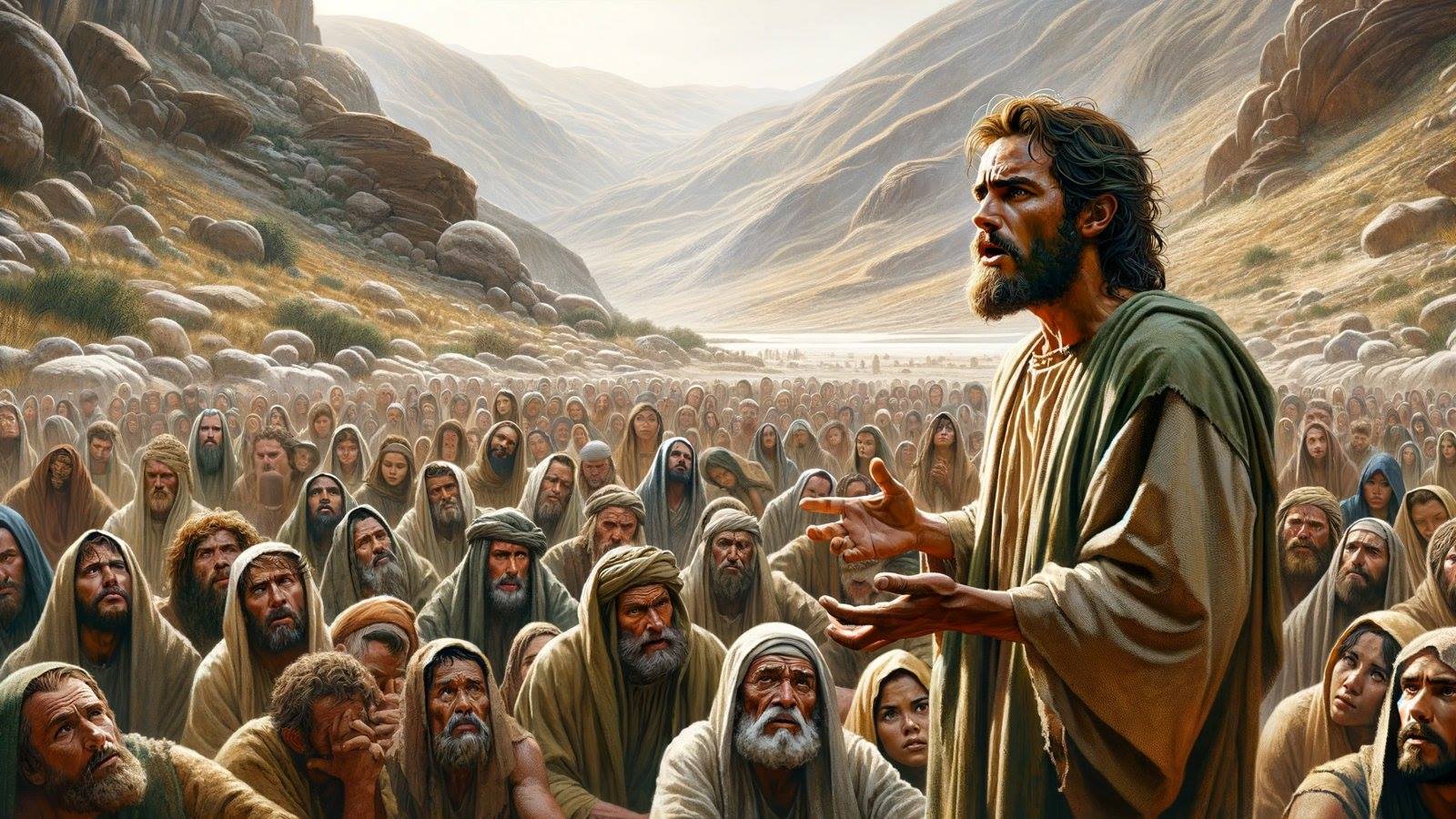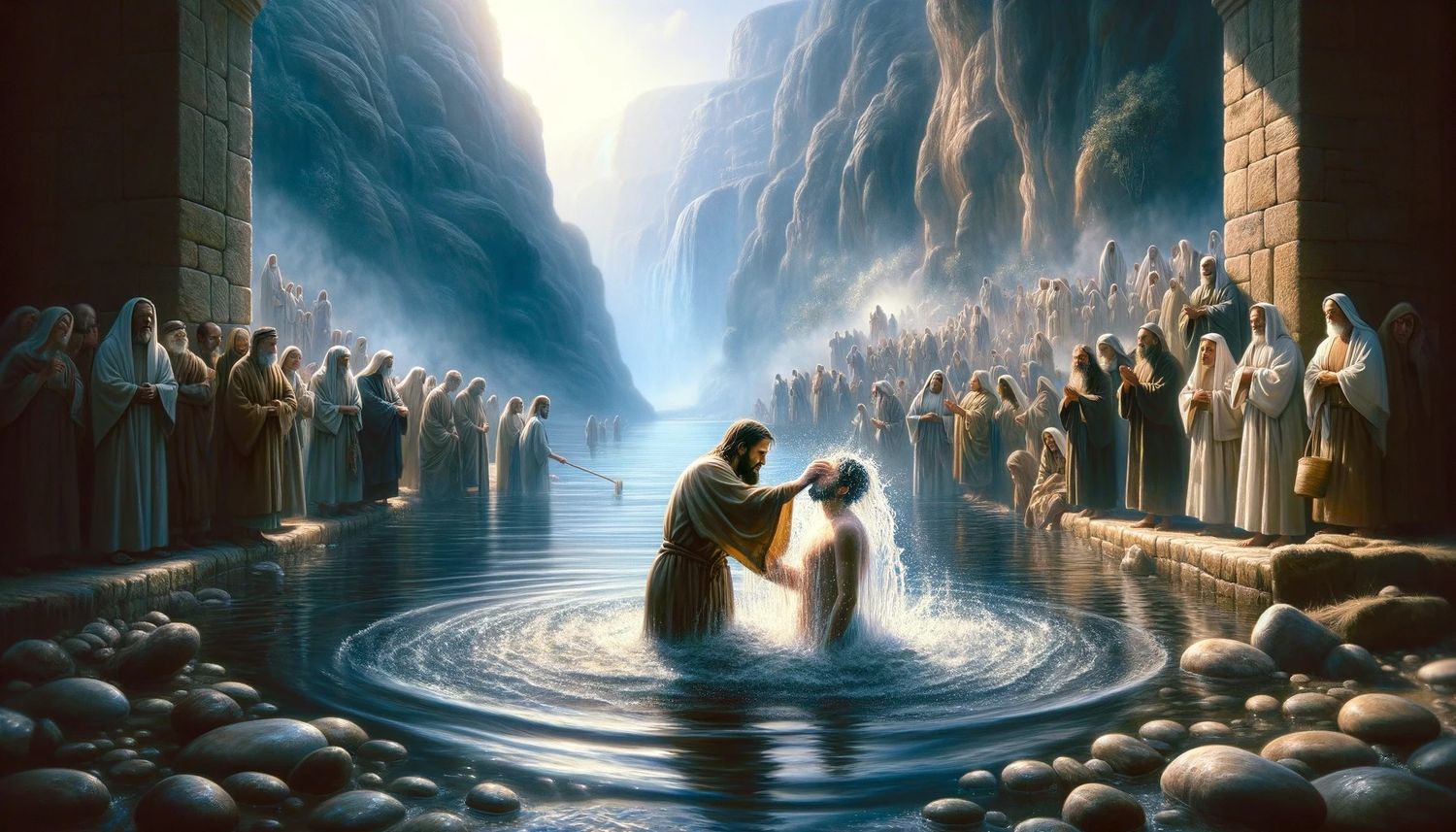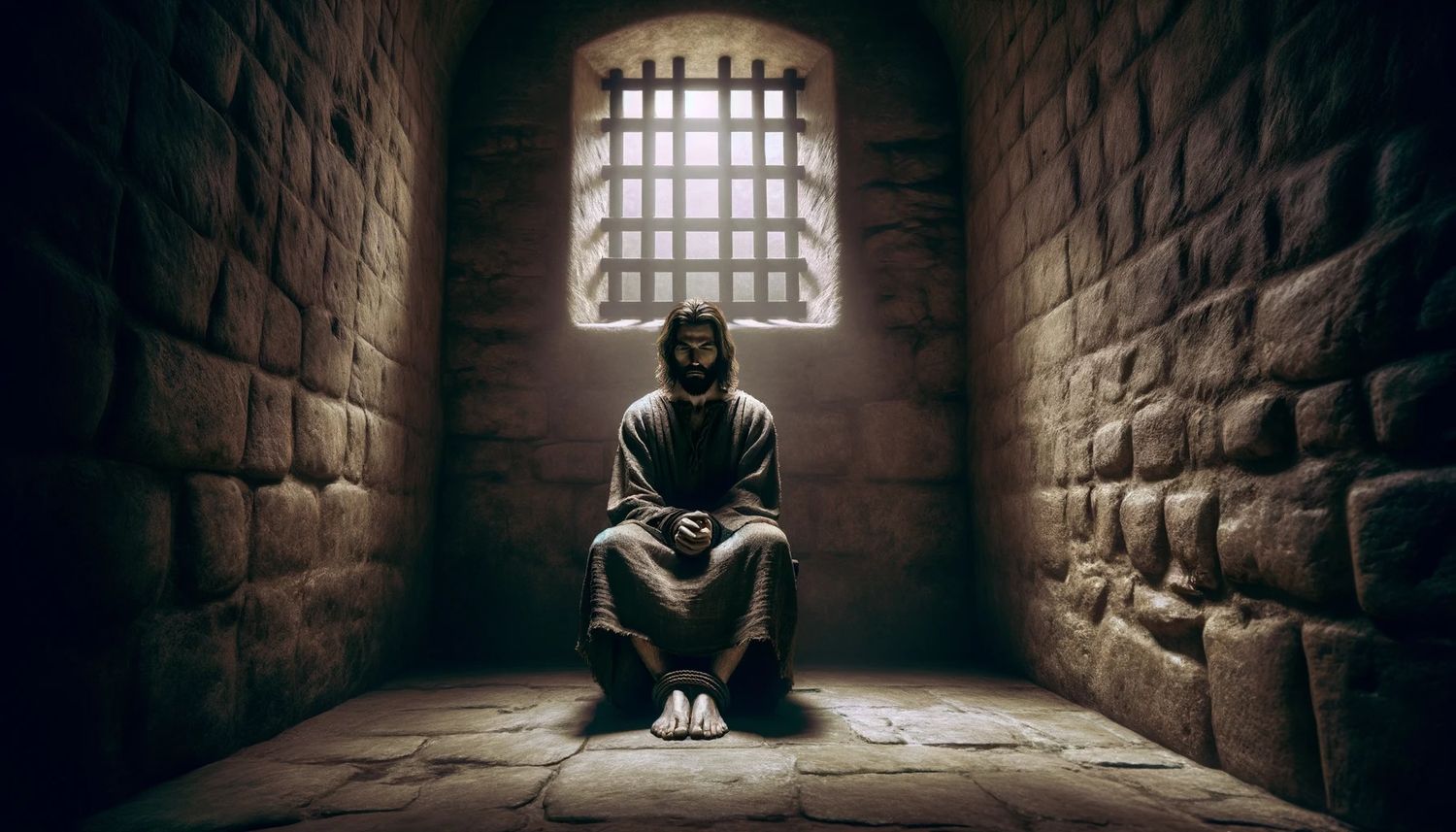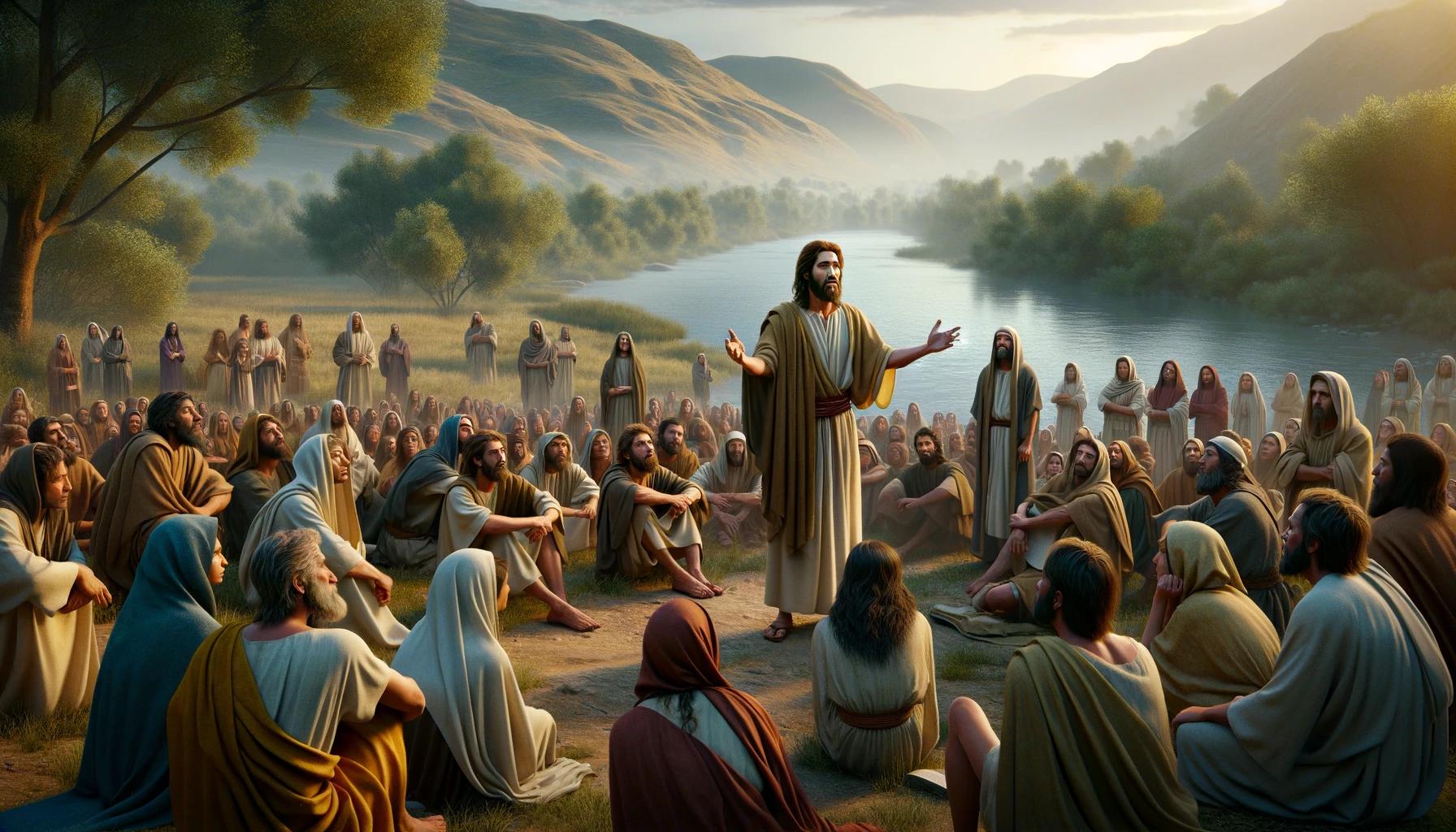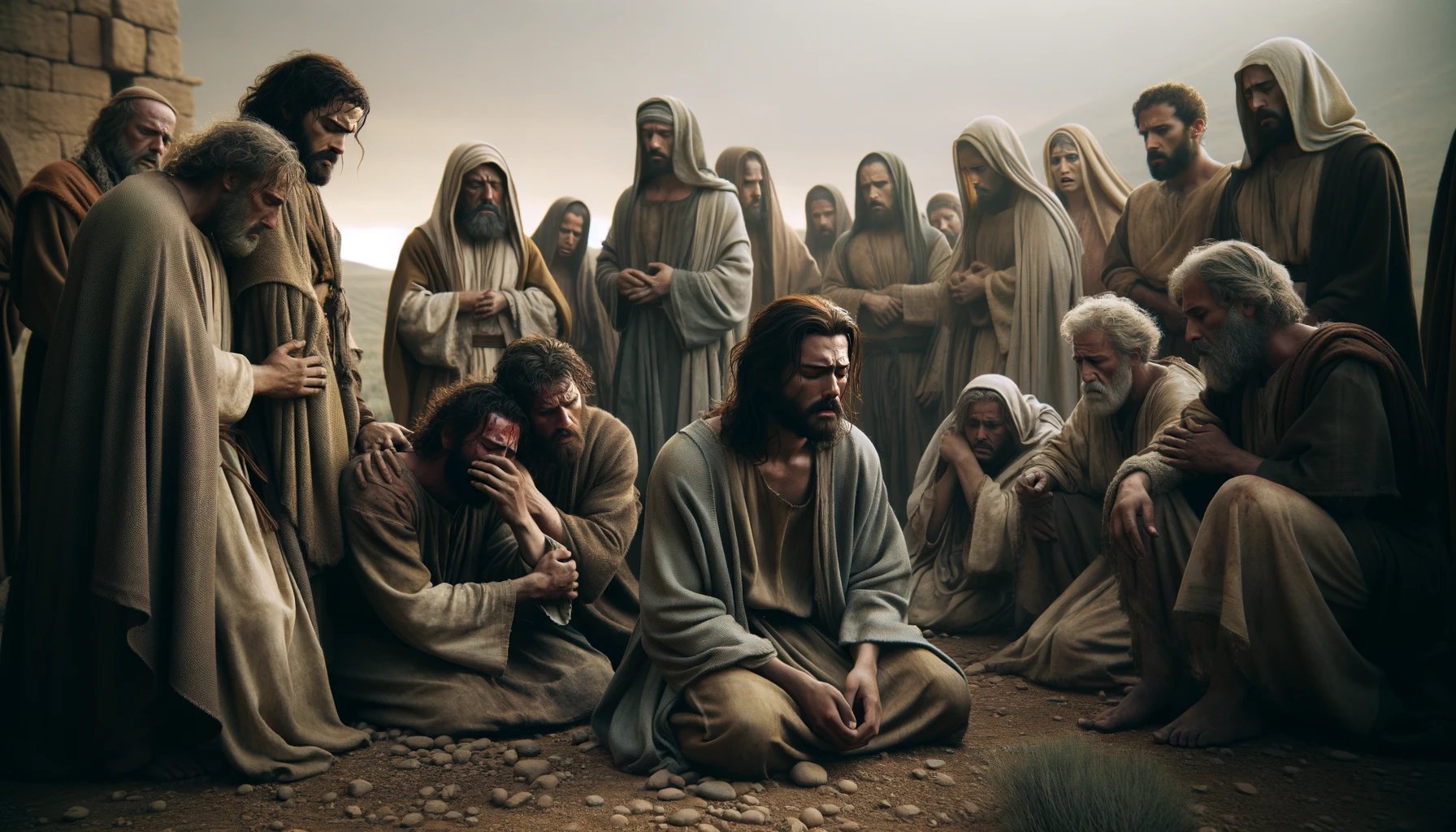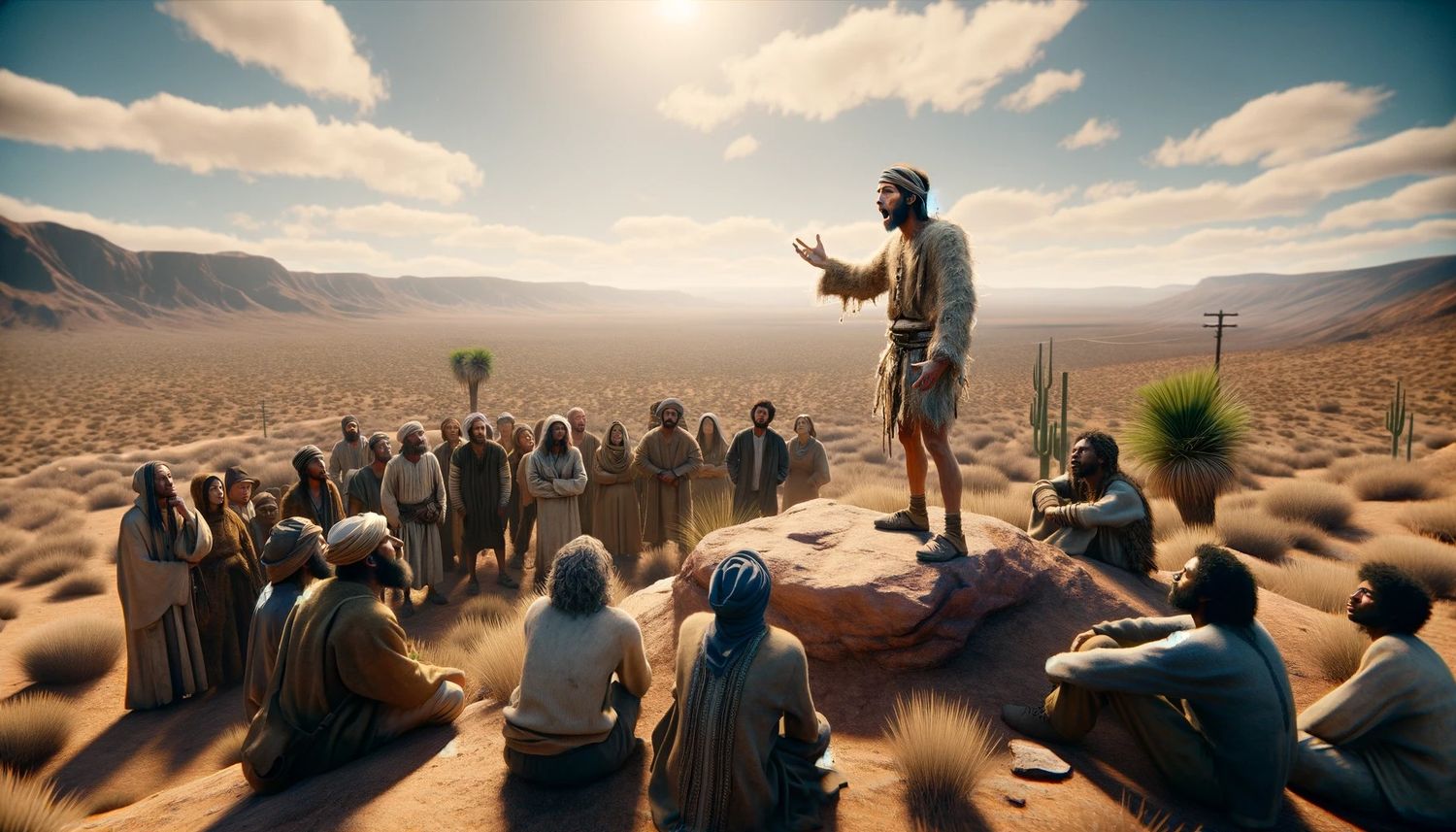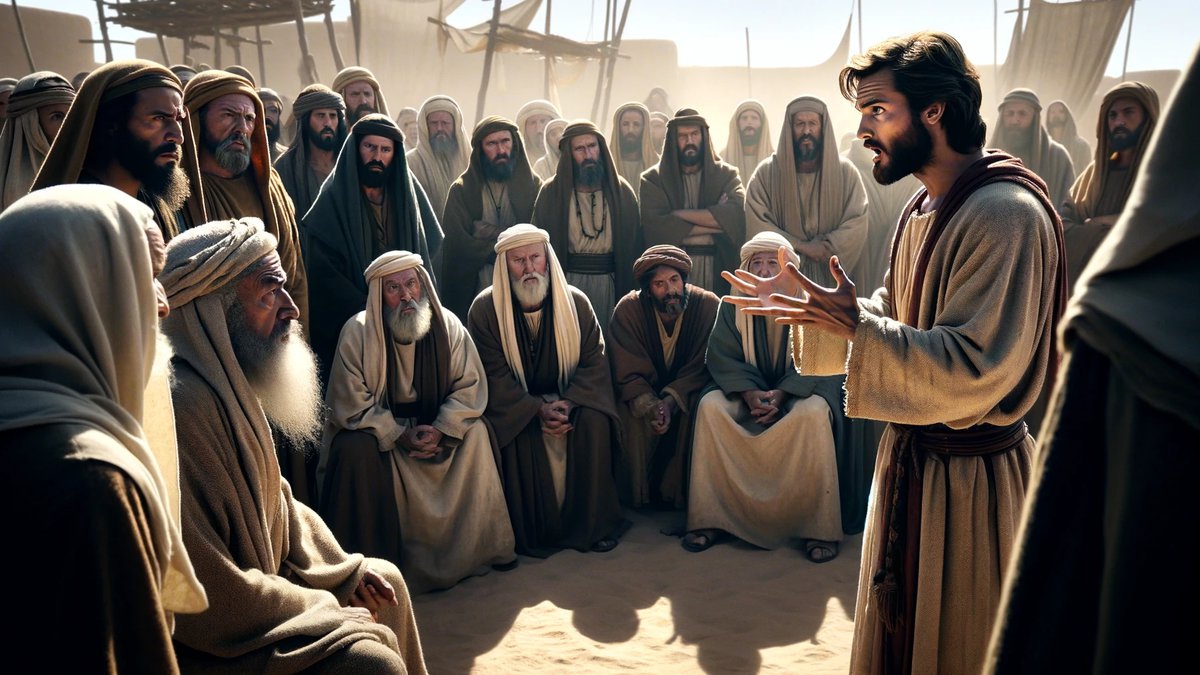Home>Theology and Spirituality>How Did John The Baptist Get The Priesthood


Theology and Spirituality
How Did John The Baptist Get The Priesthood
Published: February 22, 2024
Jason DeRose, Managing Editor at Christian.net, uses his expertise in religion and journalism to deepen understanding of faith's societal impacts. His editorial leadership, coupled with a strong academic background, enriches the platform’s diverse content, earning him recognition in both journalism and religious circles.
Discover the origins of John the Baptist's priesthood and its significance in theology and spirituality. Explore the historical context and religious implications.
(Many of the links in this article redirect to a specific reviewed product. Your purchase of these products through affiliate links helps to generate commission for Christian.net, at no extra cost. Learn more)
Table of Contents
Introduction
John the Baptist is a prominent figure in Christian history, revered for his pivotal role in preparing the way for the ministry of Jesus Christ. His significance extends beyond his renowned act of baptizing Jesus in the Jordan River. John's lineage, upbringing, and divine calling are shrouded in spiritual significance and historical intrigue. Understanding how John the Baptist obtained the priesthood sheds light on his divine mission and the fulfillment of ancient prophecies.
The priesthood, a sacred and revered institution in Judaism, played a crucial role in the religious and spiritual life of the ancient Israelites. It was through the priesthood that individuals were anointed and consecrated for divine service, serving as intermediaries between God and the people. John the Baptist's connection to the priesthood is deeply intertwined with his ancestral lineage and the divine orchestration of his life's purpose.
Delving into the origins of John the Baptist's priesthood unveils a rich tapestry of spiritual heritage and divine providence. It provides a glimpse into the intricate workings of God's plan and the fulfillment of prophetic promises. As we explore the lineage, familial connections, and pivotal encounters that shaped John's journey, we gain a deeper appreciation for the profound spiritual significance of his role in preparing the way for the Messiah.
The story of John the Baptist's priesthood is a testament to the intertwining of human history and divine intervention, showcasing the intricate ways in which God's purposes unfold through the lives of individuals. By unraveling the mysteries surrounding John's priesthood, we embark on a journey that illuminates the profound spiritual significance of his life and ministry, ultimately leading us to a deeper understanding of the divine tapestry woven throughout the pages of history.
Read more: How Did The John The Baptist Die
The Lineage of John the Baptist
John the Baptist's lineage is deeply rooted in the rich tapestry of biblical history, tracing back to the priestly lineage of his father, Zechariah. According to the Gospel of Luke, Zechariah was a priest of the division of Abijah, and his wife Elizabeth was a descendant of Aaron, the first high priest of Israel. This noble lineage bestowed upon John a heritage of priestly ancestry, imbuing his life and ministry with profound spiritual significance.
The priestly lineage of John the Baptist is intricately linked to the fulfillment of ancient prophecies, particularly the prophecy of the coming of Elijah. The Gospel of Luke references the angel Gabriel's proclamation to Zechariah, foretelling the birth of John and his future role in preparing the way for the Lord. This divine announcement harkened back to the prophecy in the book of Malachi, which spoke of the return of Elijah before the coming of the Messiah. John's lineage, steeped in priestly heritage, positioned him as a fitting fulfillment of this prophetic anticipation.
Furthermore, John's lineage underscores the divine orchestration of his birth and mission. His miraculous conception, announced by the angel Gabriel, and the subsequent fulfillment of this prophecy in the birth of John, highlight the intricate interplay between divine intervention and human lineage. The convergence of priestly ancestry, prophetic fulfillment, and divine intervention sets the stage for John the Baptist's pivotal role in heralding the arrival of the long-awaited Messiah.
The lineage of John the Baptist serves as a foundational backdrop for understanding the spiritual significance of his life and ministry. It illuminates the intricate connections between ancient prophecies, priestly heritage, and the unfolding of God's redemptive plan. Through the lens of John's lineage, we gain a profound appreciation for the divine intricacies at work in preparing the herald of the Messiah, setting the stage for the transformative impact of John's ministry on the course of human history.
The Role of John's Father, Zechariah
Zechariah, the father of John the Baptist, played a pivotal role in the unfolding narrative of divine providence and the fulfillment of ancient prophecies. As a priest of the division of Abijah, Zechariah was entrusted with the sacred duties and responsibilities inherent in his priestly lineage. His devout commitment to the rituals and traditions of the priesthood positioned him as a central figure in the divine orchestration of John's birth and the subsequent fulfillment of his prophetic destiny.
The encounter between Zechariah and the angel Gabriel, as recorded in the Gospel of Luke, serves as a defining moment in the narrative of John the Baptist's lineage and divine calling. While performing his priestly duties in the temple, Zechariah received a divine visitation that would irrevocably alter the course of his life and that of his unborn son. The angel Gabriel appeared to Zechariah, announcing the miraculous conception of a child who would be named John and proclaiming his future role as the one who would go before the Lord in the spirit and power of Elijah.
Zechariah's initial disbelief at the angel's proclamation resulted in a temporary loss of speech, a divine sign that underscored the veracity and significance of the angelic message. This period of speechlessness served as a profound testament to the divine intervention in the fulfillment of ancient prophecies, as Zechariah's eventual restoration of speech coincided with the naming of his son, John, in accordance with the angel's directive.
Zechariah's pivotal role in the narrative of John the Baptist's lineage extends beyond the angelic encounter to encompass his unwavering faith and obedience in fulfilling the divine mandate entrusted to him. His faithful adherence to the angel's instructions regarding the naming of his son and his subsequent prophetic utterance upon regaining his speech underscored his integral role in the fulfillment of God's redemptive plan.
Zechariah's obedience and prophetic declaration upon the restoration of his speech served as a prelude to the remarkable ministry that awaited his son, John the Baptist. Through his unwavering faith and pivotal role in the divine narrative, Zechariah exemplified the profound intertwining of human agency and divine providence, setting the stage for the fulfillment of ancient prophecies and the emergence of John as the herald of the Messiah.
The role of Zechariah in the lineage of John the Baptist stands as a testament to the intricate interplay between human obedience and divine orchestration, underscoring the profound significance of his priestly lineage and faithful stewardship in the fulfillment of God's redemptive purposes.
John's Encounter with Jesus
John the Baptist's encounter with Jesus stands as a pivotal moment in the narrative of their intertwined destinies and the fulfillment of divine purpose. The Gospels depict this profound meeting as a transformative and prophetic event, marking the convergence of their respective ministries and the recognition of Jesus as the long-awaited Messiah.
The encounter between John and Jesus unfolded against the backdrop of the Judean wilderness, where John had been baptizing multitudes in the Jordan River as a symbol of repentance and spiritual renewal. It was in this sacred setting that Jesus approached John, seeking baptism at his hands. The profound significance of this encounter reverberates throughout Christian history, encapsulating the divine affirmation of Jesus' identity and mission.
John's initial hesitation to baptize Jesus, recognizing the stark contrast between his own need for repentance and the sinless nature of Jesus, underscores the depth of his spiritual discernment and reverence for the divine. His declaration, "I need to be baptized by you, and do you come to me?" reflects his profound understanding of Jesus' transcendent nature and the sanctity of his divine mission.
Jesus' response to John's hesitation, affirming the necessity of his baptism to fulfill all righteousness, serves as a profound affirmation of his role as the fulfillment of divine prophecy and the embodiment of God's redemptive plan. The act of Jesus' baptism by John symbolizes the union of their ministries and the divine endorsement of Jesus as the long-awaited Messiah, inaugurating the commencement of his public ministry.
The encounter between John and Jesus serves as a testament to the divine orchestration of their destinies and the fulfillment of ancient prophecies. It symbolizes the passing of the baton from the herald to the awaited King, marking the transition from the preparatory ministry of John to the transformative mission of Jesus. This profound encounter not only solidified Jesus' public manifestation as the Messiah but also affirmed the sacred interconnectedness of their roles in the grand narrative of redemption.
The encounter between John the Baptist and Jesus stands as a defining moment in the annals of Christian history, encapsulating the divine affirmation of Jesus' identity and mission, and marking the seamless transition from the preparatory ministry of John to the transformative mission of Jesus.
John's Baptism and Ministry
John the Baptist's baptismal ministry holds profound significance in the narrative of his divine calling and the preparation for the arrival of the Messiah. His proclamation of a baptism of repentance for the forgiveness of sins reverberated throughout the Judean wilderness, drawing multitudes who sought spiritual renewal and a turning of hearts towards God. The act of baptism, symbolizing cleansing and spiritual rebirth, served as a transformative rite that prepared the hearts of the people for the imminent arrival of the long-awaited Messiah.
John's baptismal ministry was characterized by a fervent call to repentance and a prophetic urgency to prepare the way for the coming of the Lord. His uncompromising message resonated with authenticity and conviction, compelling individuals to confront their spiritual condition and embrace a radical transformation of heart and mind. The baptismal waters of the Jordan River became a sacred conduit for spiritual awakening, as multitudes responded to John's call and underwent the symbolic act of immersion, signifying their commitment to a renewed life of righteousness and devotion to God.
The baptismal ministry of John the Baptist transcended mere ritualistic observance, embodying a profound spiritual awakening and a call to genuine inner renewal. His impassioned exhortations and unwavering commitment to the prophetic mandate set the stage for a transformative movement that would culminate in the revelation of the Messiah. Through his baptismal ministry, John heralded a message of hope, redemption, and spiritual restoration, igniting a fervent anticipation for the imminent fulfillment of divine promises.
Furthermore, John's ministry extended beyond the ritual of baptism to encompass a prophetic proclamation of the coming Kingdom of God. His impassioned sermons and unwavering commitment to truth and righteousness positioned him as a compelling voice in the wilderness, drawing the attention of religious leaders, seekers, and the marginalized alike. His fearless denunciation of hypocrisy and unyielding devotion to the proclamation of God's imminent reign exemplified the depth of his prophetic calling and the unwavering commitment to prepare the hearts of the people for the transformative impact of the Messiah's ministry.
In essence, John the Baptist's baptismal ministry served as a catalyst for spiritual awakening and a herald of the imminent arrival of the Messiah. His unwavering commitment to the prophetic mandate, coupled with the transformative impact of baptism, positioned him as a central figure in the divine narrative of redemption, setting the stage for the transformative ministry of Jesus and the fulfillment of ancient prophecies.
Read more: How Did Saint John The Baptist Die
Conclusion
The intricate tapestry of John the Baptist's priesthood, lineage, and divine calling unveils a profound narrative of spiritual significance and historical resonance. From his noble priestly lineage to the pivotal role of his father, Zechariah, in the fulfillment of ancient prophecies, John's life and ministry are intricately woven into the fabric of divine providence and redemptive history.
John the Baptist's encounter with Jesus in the Judean wilderness stands as a transformative moment that marked the seamless transition from the preparatory ministry of John to the transformative mission of Jesus. The act of baptizing Jesus, culminating in the divine affirmation of Jesus' identity as the long-awaited Messiah, underscores the sacred interconnectedness of their destinies and the fulfillment of ancient prophecies.
Furthermore, John's baptismal ministry, characterized by a fervent call to repentance and spiritual renewal, served as a catalyst for preparing the hearts of the people for the imminent arrival of the Messiah. His unwavering commitment to the prophetic mandate and the transformative impact of baptism positioned him as a central figure in the divine narrative of redemption, igniting a fervent anticipation for the fulfillment of divine promises.
In essence, the story of John the Baptist's priesthood is a testament to the intertwining of human history and divine intervention, showcasing the intricate ways in which God's purposes unfold through the lives of individuals. His priestly lineage, ancestral heritage, and pivotal encounters with Jesus exemplify the profound spiritual significance of his role in preparing the way for the Messiah, ultimately leading to a deeper understanding of the divine tapestry woven throughout the pages of history.
As we reflect on the narrative of John the Baptist's priesthood, we are invited to contemplate the profound implications of divine calling, ancestral lineage, and the fulfillment of ancient prophecies. His life and ministry serve as a testament to the intricate interplay between human agency and divine providence, illuminating the profound spiritual significance of his role in the grand narrative of redemption. Through the lens of John's priesthood, we are drawn into a deeper appreciation for the divine intricacies at work in preparing the herald of the Messiah, setting the stage for the transformative impact of John's ministry on the course of human history.
